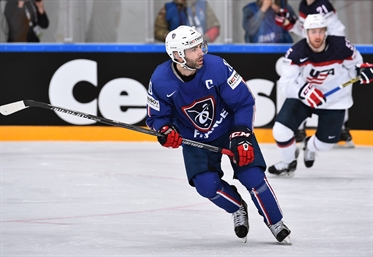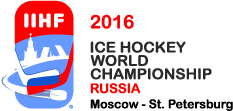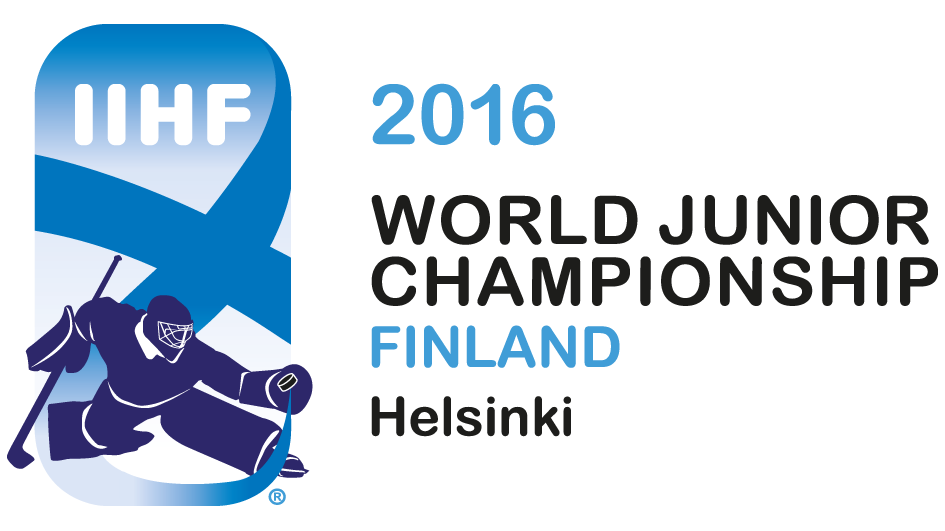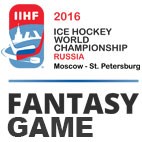Numbers & Stories
Numbers & Stories
A most interesting World Championship

 No player in modern WM history has captained his team more years consecutively than France's Laurent Meunier. Photo: Minas Panagiotakis / HHOF-IIHF Images
No player in modern WM history has captained his team more years consecutively than France's Laurent Meunier. Photo: Minas Panagiotakis / HHOF-IIHF Images
BELARUS—Staying power—Although Belarus has never been a serious medal contender at the Worlds, it has rarely faced serious relegation possibility either in recent times. This is the nation’s 12th straight year in the top level, but the key game will be Saturday against Hungary. The winner of that game has a great chance of going to Paris/Cologne next year and the loser a good chance of being sent down to Division I-A.
CANADA—60 and done—One of the most impressive aspects of Canada’s current 13-game unbeaten streak is that all wins have come in regulation time. Since the IIHF went to the three-point game system in 2007, only Russia (2012-13) has had as long a streak. If Canada beats Germany in regulation tonight, it will set a modern-day record for consecutive regulation wins with 14.
CZECH REPUBLIC—Consistently great—In the long history of hockey in Czechoslovakia/Czech Republic, going back to the first independent World Championship in 1930, the nation has never failed to earn a medal four straight years. But after disappointing finishes the last three years (7th, 4th, 4th), the Czechs are in jeopardy of doing so this year if they don’t at least win the bronze-medal game.
DENMARK—BIG—Belarus has the tallest player in the tournament with 6’7” (2.01m) Oleg Yevenko, and it also has the heaviest, Dmitri Korobov, 238 lbs. (108kg). But Denmark goes one better in that Mathias Bau is BOTH 6’7” AND 238 lbs.!
FINLAND—Own the podium—Finland didn’t win its first WM medal until a silver in 1992. From 1992 to 2015, it has won 12 medals in all (2 gold, 7 silver, 3 bronze). During that time only Sweden (17) has won more. The Czechs have also won 12 (13 if you count a Czechoslovakia bronze in 1992), Canada 11, and Russia 10.
FRANCE—Forever C—Laurent Meunier is captaining France this year, his ninth consecutive year wearing the “C” at the top level of the World Championship. Mark Streit of Switzerland has also been the leader nine times (not consecutively), the most of any player in the modern era.
GERMANY—Great resume—Coach Marco Sturm surely has the finest playing credentials of any coach at this year’s tournament. Internationally, he represented Germany at the U20, three Worlds, three Olympics, and the 2004 World Cup. In the NHL, he played nearly 1,000 games primarily with San Jose and Boston (and Los Angeles, Washington, Vancouver, and Florida for brief stretches). Seven times he scored at least 20 goals.
HUNGARY—“Cangary”—While Kazakhstan has three North Americans, Hungary has FIVE, including perhaps the most obscure player in this year’s tournament, defenceman Kalvin Sagert. Born in British Columbia, he played parts of SIX years in the Western Hockey League. Undrafted, he used CHL scholarship money to attend Lakehead University as a Geography major, made a brief attempt in the minor pros in North America, and then headed to Hungary in 2014.
KAZAKHSTAN—Can-American goals—With 12 goals in four games, Kazakhstan will surely top its previous record of 16 at one World Championship, which it scored in 2014. Helping the cause are the three North Americans. Jason Dawes leads all players on the team in points (6), while he, Brandon Bochenski, and Dustin Boyd have combined for five of those 12 goals and 12 total scoring points.
LATVIA—Longevity, good and bad—Goaltender Edgars Masalskis has been around a long time. This is his 12th World Championship, and after losing the first two games he’s played in Moscow he has the dubious distinction of padding his lead for most all-time losses at the World Championship (32 now, four ahead of Andrei Mezin). However, he has also moved into sixth place all-time for most minutes played (2,968:35) and tied for fifth all-time in games played (53, with Finland’s Jorma Valtonen).
NORWAY—Minutes muncher—Defenceman Jonas Holos is on the ice more than any other player at the tournament. He’s averaging a whopping 28:37 a game, by far the most of anyone. Maxim Semyonov of Kazakhstan is second at 26:00.
RUSSIA—In our backyard—Although Moscow has been the host to many World Championships since the Soviet Union started playing in 1954, it is not the city that has hosted the most games. That distinction goes to Stockholm (327), followed by Prague (320), and Helsinki (255). Moscow is currently at 224, but including 2016 that number will climb to 258.
SLOVAKIA—The good old days—There are no links between this team and the historic 2002 gold medallists. The closest we get is Dominik Granak whose first World Championship came in 2004. This is his eleventh WM overall, and he was on the second-most famous Slovakian team, the one that took silver in 2012. Other players in Russia who were on that team include goaltender Julius Hudacek and skaters Libor Hudacek, Andrej Sekera, Dominik Granak, and Juraj Mikus.
SWEDEN—Golden helmet—By recording a hat trick last night against Kazakhstan, Gustav Nyquist accomplished two things. He moved into top spot for goals scored this year (5) and he became the second player to score three goals in a game as well (after Sacha Treille of France).
SWITZERLAND—Extra time—While Canada is getting things done in a tidy 60 minutes, the Swiss came within a couple of minutes yesterday of playing in what would have been a record fourth straight overtime. Three teams have played in three OT games in a row since the IIHF went to the current playing format in 2007: Belarus in 2008; Sweden in 2009; and, Germany in 2011.
UNITED STATES—Young, young guns—How young is this American team? Consider they have EIGHT players on the roster born 1995 or later. That’s twice as many as Denmark. Finland and Canada have three, three countries have two, and four countries (France, Kazakhstan, Sweden, Switzerland) don’t even have one ’95 or younger player on their team.
Back to Overview














































































